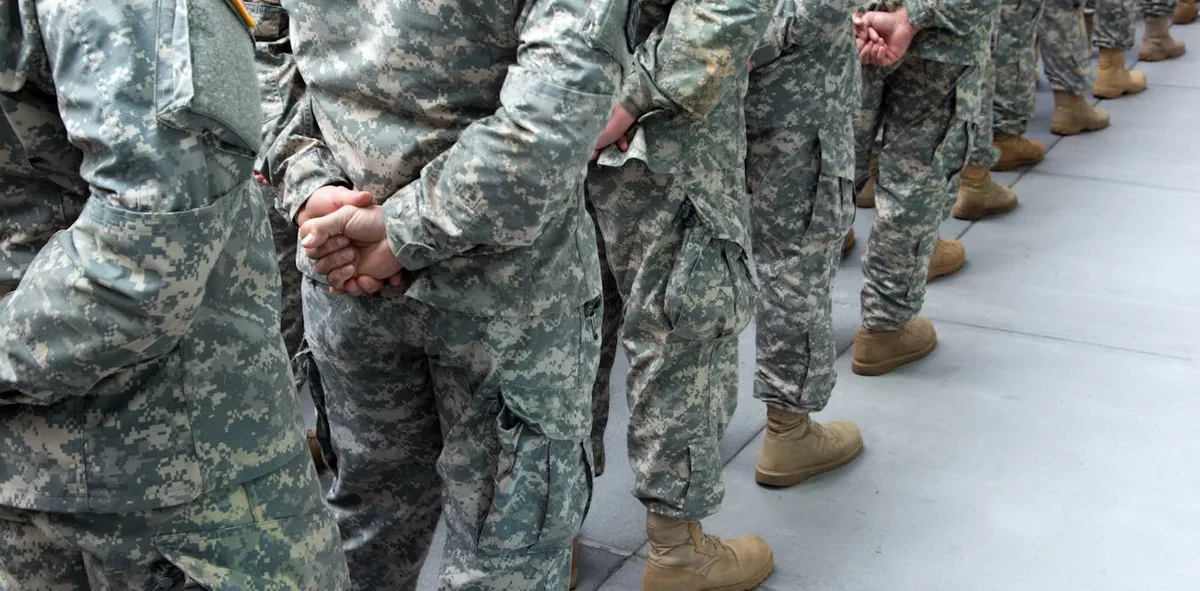
As the Trump administration undertakes what numerous observers are deeming illegal military strikes against vessels in the Caribbean allegedly involved in drug smuggling, a group of six Democratic lawmakers released a powerful video on November 18, 2025. In this video, they urged military personnel to recognize their rights, stating, “You can refuse illegal orders” and “You must refuse illegal orders.” Notably, all these legislators have backgrounds in the military or the intelligence community, which adds weight to their message.
This call to action ignited a fierce backlash on social media from President Donald Trump, who disparaged the lawmakers' stance as “seditious behavior, punishable by death.” In an interview with The New York Times, Senator Elissa Slotkin revealed that she had received communications from active-duty troops expressing concerns about their legal responsibilities regarding the actions being taken in the Caribbean. This incident marks yet another chapter in a series of controversial military directives issued by Trump, raising significant questions about legality and ethics.
The announcement on August 11, 2025, that President Trump would deploy the National Guard alongside federal law enforcement in Washington, D.C., to combat crime, has led to increased tensions between military and civilian roles. Critics argue that this blurring of lines puts troops in precarious positions and can lead to ethical and legal violations. Since Trump's return to office, many of his policies have drawn condemnation from international human rights advocates, particularly concerning the deportation of immigrants without due process and the treatment of detainees.
As military personnel navigate these treacherous waters, they face the daunting ethical dilemma of how to respond to orders they perceive as illegal. This situation may already be impacting troop morale. A National Guard member deployed to manage public unrest over immigration arrests in Los Angeles told The New York Times, “The moral injuries of this operation, I think, will be enduring. This is not what the military of our country was designed to do, at all.”
U.S. service members take an oath to uphold the Constitution, and under Article 92 of the Uniform Code of Military Justice, they are obligated to obey lawful orders while disobeying unlawful ones. Unlawful orders are those that clearly contravene the U.S. Constitution, international human rights standards, or the Geneva Conventions. Service members who comply with illegal orders can face prosecution, including court-martial and international tribunal actions.
Our survey conducted at the University of Massachusetts Amherst’s Human Security Lab in June 2025 revealed that many service members are aware of these obligations. From the 818 active-duty troops surveyed, only 9% indicated they would “obey any order,” while 2% opted for “no comment.” When asked to define unlawful orders, approximately 25% described their duty to disobey commands that were “obviously wrong” or “criminal,” while another 8% referenced orders they considered immoral. One respondent articulated, “Orders that clearly break international law, such as targeting non-combatants, are not just illegal — they’re immoral. As military personnel, we have a duty to uphold the law and refuse commands that betray that duty.”
While many service members recognize their responsibility to disobey illegal orders, some expressed distrust in U.S. law as a reliable measure. When reflecting on how they would identify an illegal order, a notable number of respondents pointed to international law as their standard of illegality. Concerns were voiced that actions deemed illegal under international law might be legitimized domestically. One respondent stated, “Trump will issue illegal orders,” while others mentioned disobeying orders involving oppression or harming U.S. civilians.
Despite the pressures to comply with orders, there is a significant portion of troops who are willing to disobey commands that contravene ethical standards. Our research indicates that when actively reminded of international law prohibiting the harming of civilians, the willingness of troops to disobey increased by 8 percentage points.
Past research conducted by myself and a colleague in 2020 demonstrated that discussions about law and morality could influence opposition to war crimes. Our survey results echoed this sentiment; troops who were prompted to consider their duty to disobey unlawful orders were more inclined to refuse specific illegal commands afterward. For instance, 69% of troops who were first asked about a hypothetical order to drop a nuclear bomb on a civilian city indicated they would comply. However, when they were asked about the duty to disobey beforehand, the percentage willing to obey dropped to 56%.
Although many service members expressed a willingness to follow questionable orders, the number of those who would resist is notable. Military culture often complicates disobedience, as soldiers risk court-martial for both obeying unlawful orders and disobeying lawful ones. Yet, between one-third and half of the surveyed troops indicated they would refuse orders to shoot or starve civilians, torture prisoners, or drop a nuclear bomb on a city. Many described various methods for disobedience, including confronting superiors or even indirect approaches such as asking questions or creating diversions.
Research indicates that instances of troop disobedience can inspire others to act similarly. The preliminary findings of our survey, alongside an increase in calls to the GI Rights Hotline, highlight that U.S. military personnel are increasingly reluctant to comply with unlawful orders. This sentiment is a clear indication that many service members are contemplating their ethical obligations and looking to both the Constitution and international law for guidance in determining when to draw the line.
This article, originally published on August 13, 2025, has been updated to include a reference to the video issued by Democratic members of Congress. Zahra Marashi, an undergraduate research assistant at the University of Massachusetts Amherst, contributed to the research for this article.